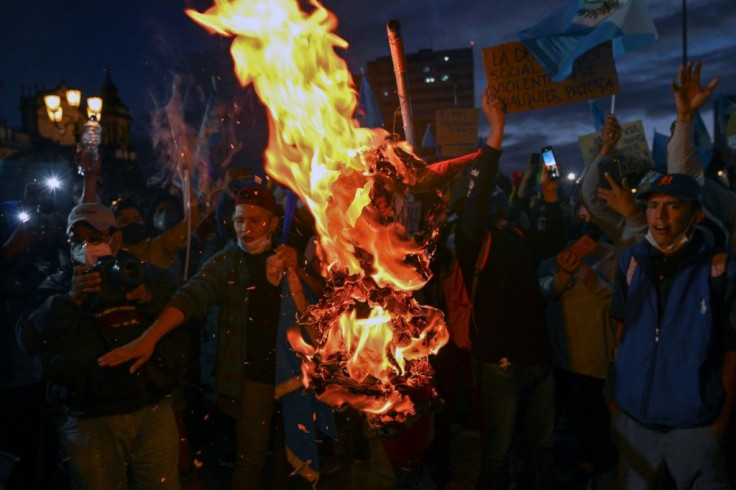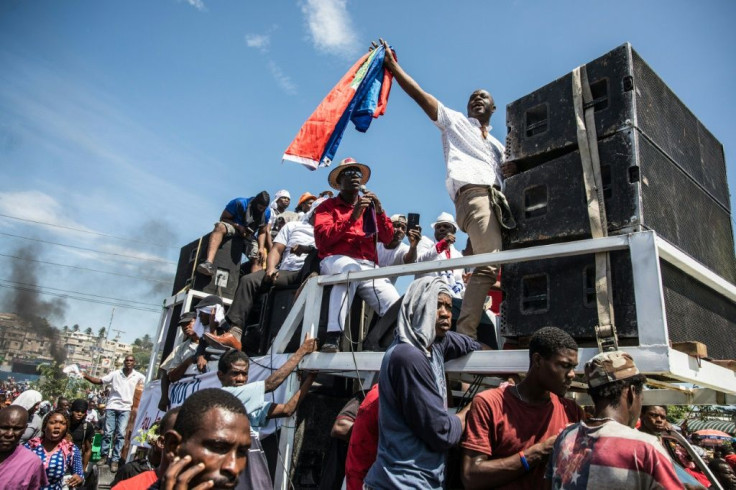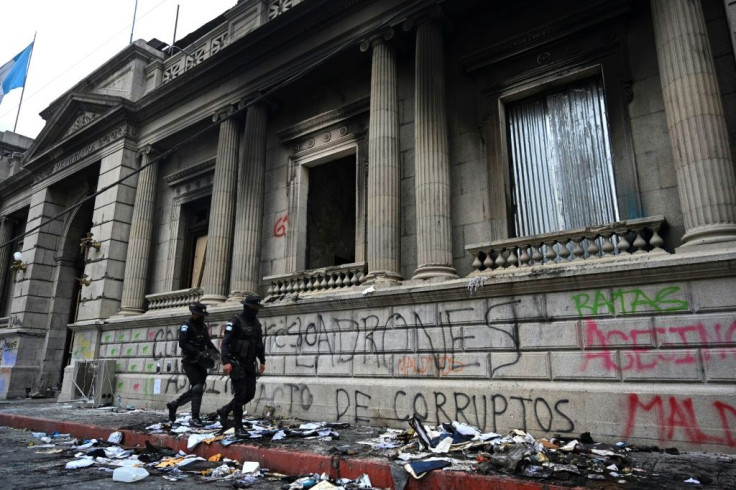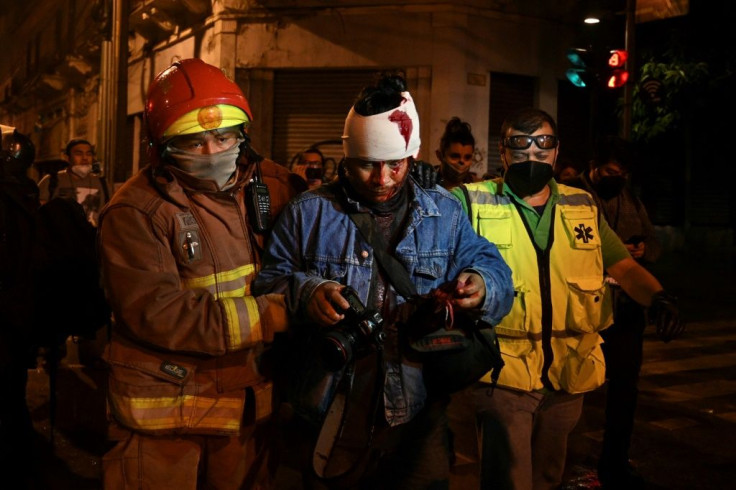Guatemalans Protest For Second Day To Demand President Resign
Hundreds of Guatemalans took to the streets for a second day Sunday to demand the resignation of President Alejandro Giammattei, following the passage of a budget that has sparked outrage in the impoverished Central American nation.
Masked protesters filled the central square in front of the old government palace in the historic center of the capital. They carried signs with slogans including "I would rather die as a rebel than live as a slave" and "Giammattei out."
Sunday's peaceful protests came the day after demonstrators partially burned down the Congress building.

Giammattei issued a statement Sunday afternoon reproaching Saturday's violent demonstrations, saying he considered the protesters to be "minority groups that seek to force a true coup d'etat."
He announced that his administration had invoked the Inter-American Democratic Charter, an instrument of the Organization of American States (OAS) that allows for the ability to take sanction or take steps to guarantee the respect of constitutional order in participating countries.
In his statement, Giammattei urged dialogue with different sectors to analyze the situation, since "it is only through dialogue and concentration... that our country will be able to overcome the challenges it faces today."

The University of San Carlos, the only state-run university in the country, called for a national strike on Monday. The Committee for Peasant Development (Codeca) announced that it will block major roads throughout the country.
Vice president Guillermo Castillo, who on Friday asked Giammattei to resign with him, asked the public prosecutor's office on Sunday to investigate both the burning of Congress but also the police repression of the protests.
OAS Secretary-General Luis Almagro and the Inter-American Commission on Human Rights criticized the budget and the violence against protesters, after condemning the fire at Congress.

The widespread discontent and indignation in Guatemala against Giammattei's administration and Congress have been caused by a lack of resources for battling the coronavirus pandemic, as well as the new budget.

Guatemala's Congress, dominated by conservative pro-government parties, last week approved an almost $13 billion budget, the largest in the country's history.
Most of the funds will go to infrastructure tied to big business, sparking outrage in a country where poverty is widespread and half of children under five years old are malnourished.
Analysts have also warned that a third of the budget will need to be financed by debt.

The country's Congress has approved $3.8 billion to fight the coronavirus pandemic, but less than 15 percent of those funds have been invested.
Giammattei's management of the health crisis has been criticized by his vice president, the opposition and social sectors, all of whom denounce deficiencies in the hospitals as well as in taking care of groups affected by lockdowns aimed at slowing the spread of the coronavirus.
In Saturday's protest in front of Congress, police arrested nearly 40 people, including two under 18, according to the country's supreme court.
The Red Cross said it had tended to about 50 protesters. Another 15 were sent to hospital injured, one of them in serious but stable condition, the Roosevelt and San Juan de Dios hospitals reported.
Carrying the national flag and banners that said "No more corruption," "Giammattei out," and "They messed with the wrong generation," the protesters filled the central square in front of the old palace.
Police fired tear gas while protesters -- many of whom wore surgical masks or other face coverings -- hurled rocks at the officers.
One man was seen being carried away on a stretcher, blood streaming from his head.
"We are tired, there is no other way to show our repudiation, we are fed up, we are already tired of so much abuse by authorities," said a protester who declined to give her name.
Vice president Castillo earlier Friday had asked Giammattei to resign with him "for the good of the country."
He also reportedly told the president that "things are not right," and admitted to tensions between himself and the head of state.
Giammattei, a 64-year-old doctor, swept to power in January promising to clean up corruption and fight organized crime.
But his presidency has been dominated by controversy over his handling of the coronavirus, particularly deficiencies in the country's hospitals.
He has also publicly sparred with his vice president, who in May revealed the two had privately clashed over the best response to the Covid-19 pandemic.
According to official data, there are nearly 120,000 cases of Covid-19 in the country of 17 million, and more than 4,000 deaths.
© Copyright AFP {{Year}}. All rights reserved.





















